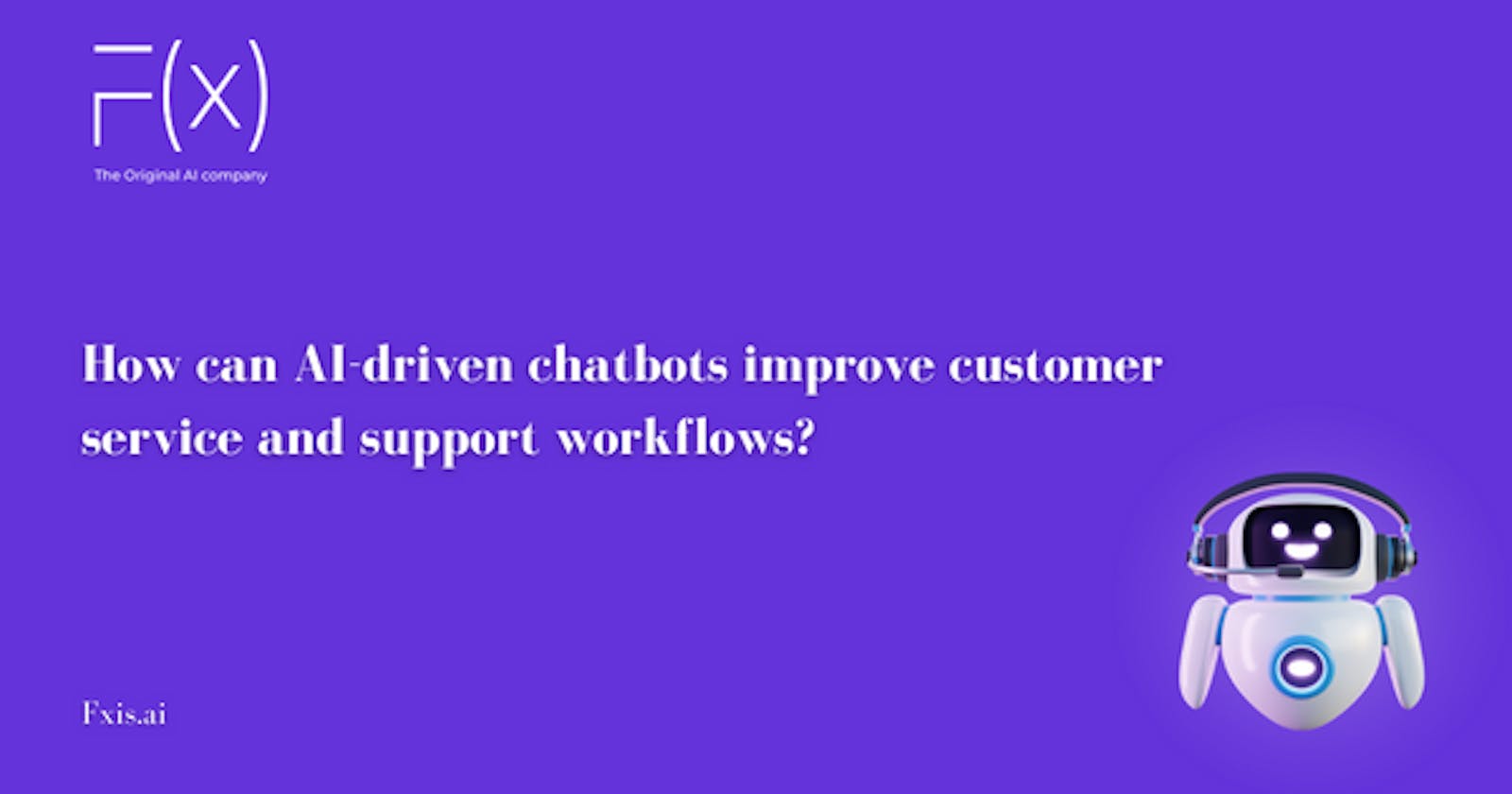How can AI-driven chatbots improve customer service and support workflows?
Elevating Customer Service with AI Chatbots! 🤖💬
Introduction
In today's fast-paced digital world, providing exceptional customer service is more important than ever. With the rise of AI technology, businesses are turning to AI-driven chatbots to improve customer service and support workflows. In this article, we'll explore the role of AI-driven chatbots in enhancing customer service, their benefits, challenges, and considerations for implementation.
The Role of AI in Customer Service
AI-driven chatbots are revolutionizing the way businesses interact with their customers. These intelligent virtual assistants leverage machine learning and natural language processing to understand and respond to customer inquiries in real-time. Over the years, AI technology has evolved, enabling chatbots to handle increasingly complex tasks and provide personalized experiences to users.

Benefits of AI-driven Chatbots
One of the key benefits of AI-driven chatbots is their 24/7 availability and instant response capabilities. Unlike human agents, chatbots can handle customer inquiries at any time of the day or night, improving responsiveness and customer satisfaction. Additionally, chatbots are highly scalable and cost-effective, allowing businesses to handle a large volume of inquiries without increasing operational costs.
Improving Customer Experience
AI-driven chatbots play a crucial role in enhancing the customer experience by providing seamless integration with existing platforms such as websites, mobile apps, and messaging apps. Customers can interact with chatbots using their preferred channels, receiving timely and relevant responses to their inquiries. This not only improves satisfaction but also increases engagement and loyalty.
Streamlining Support Workflows
By automating routine tasks and inquiries, AI-driven chatbots help streamline support workflows, allowing human agents to focus on more complex issues that require human intervention. Chatbots can handle common inquiries such as FAQs, order tracking, and product information, freeing up human agents to provide personalized assistance to customers.

Handling Complex Queries
AI-driven chatbots are equipped with advanced natural language processing capabilities, allowing them to understand and respond to complex queries in a conversational manner. Whether it's troubleshooting technical issues or providing product recommendations, chatbots can provide relevant information and solutions to customers, improving satisfaction and reducing resolution times.
Data Analysis and Insights
One of the key advantages of AI-driven chatbots is their ability to collect and analyze customer data, providing valuable insights into customer behavior and preferences. By analyzing interactions with chatbots, businesses can identify trends, patterns, and areas for improvement, allowing them to make data-driven decisions and optimize their customer service strategies.
Challenges and Considerations
While AI-driven chatbots offer numerous benefits, there are also challenges and considerations to keep in mind. Ensuring accuracy and reliability is essential to maintaining customer trust, as inaccurate or irrelevant responses can frustrate users. Additionally, businesses must strive to maintain a human touch in interactions, balancing automation with personalized assistance.

Implementing AI-driven Chatbots
Implementing AI-driven chatbots requires careful planning and consideration. Businesses must choose the right chatbot platform that aligns with their needs and objectives. Additionally, training and customization are essential to ensuring that chatbots accurately represent the brand and provide meaningful interactions with customers.
Case Studies and Success Stories
Numerous companies have successfully implemented AI-driven chatbots to improve customer service and support workflows. For example, airline companies use chatbots to assist with booking flights and providing travel information, while e-commerce companies use chatbots to handle customer inquiries and support.
Future Trends in AI-driven Customer Service
Looking ahead, the future of AI-driven customer service is promising, with advancements in technology such as integration with voice assistants and smart devices. As AI technology continues to evolve, businesses will have new opportunities to enhance customer service and support workflows, providing seamless and personalized experiences to users.
Ethical Considerations

Finally, it's essential to consider ethical considerations when implementing AI-driven chatbots, such as privacy and data security concerns. Businesses must prioritize transparency and accountability, ensuring that customer data is handled responsibly and ethically.
Conclusion
In conclusion, AI-driven chatbots have the potential to revolutionize customer service and support workflows, providing businesses with a cost-effective and efficient way to interact with their customers.
For more insights into AI|ML and Data Science Development, please write to us at: contact@fxis.ai| FxisAi
#Chatbots #CustomerService #AI #DigitalTransformation 🤖

